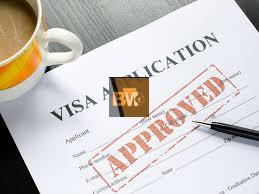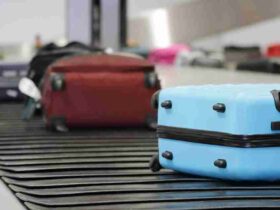Obtaining a UK fiancé visa can be a complex process, but with the right guidance and preparation, you can successfully navigate it. A fiance visa UK allows the non-British partner of a British citizen or someone with settled status in the UK to enter the country with the intention of getting married within six months. Here’s a comprehensive guide covering essential tips, eligibility requirements, and a detailed document checklist to help ensure your application’s success.
1. Understanding the UK Fiance Visa: What Is It?
The UK fiancé visa, also known as the UK marriage visa, is designed for those who are engaged to a British citizen or someone with settled status in the UK. This visa allows the applicant to enter the UK with the purpose of getting married within six months. Importantly, the fiancé visa does not permit the holder to work while in the UK, as its primary purpose is marriage. Once the marriage has taken place, the applicant can apply for a spouse visa, which grants the right to live and work in the UK.
2. Key Eligibility Criteria for the UK Fiance Visa
Meeting the eligibility requirements is crucial for a successful UK fiancé visa application. These include:
- Relationship Requirements: You and your partner must have met in person, and your relationship should be genuine and subsisting.
- Age Requirements: Both partners must be at least 18 years old.
- Financial Requirements: Your British or settled partner must have a minimum annual income of £18,600 or more. This increases if you have dependent children.
- English Language Requirement: Applicants need to demonstrate English language proficiency by taking an approved test.
- Accommodation Requirement: You must have suitable accommodation arranged for when you arrive in the UK.
Meeting each of these criteria is essential to avoid a visa refusal. The Home Office reviews all applications rigorously, so double-checking that you satisfy each requirement is important.
3. The UK Fiancé Visa Document Checklist
Having a well-organized document checklist is essential to avoid delays. Here are the main documents required for a UK fiance visa document checklist application:
- Passport: A valid passport for both the applicant and their partner.
- Proof of Relationship: Evidence such as photos together, communication records (emails, texts, or call logs), travel itineraries, and affidavits from friends and family.
- Financial Evidence: Payslips, bank statements, and tax records proving that the British partner meets the financial requirement.
- Accommodation Details: Evidence of where you will stay in the UK, such as a tenancy agreement or property ownership documents.
- English Language Test Certificate: Proof of passing an approved English language test.
- Tuberculosis (TB) Test Results: Required for applicants from certain countries.
- Proof of Plans to Marry: Wedding venue booking confirmations, receipts for arrangements, or invitations.
Having these documents up-to-date, accurate, and organized is crucial, as incomplete documentation is a common reason for visa refusals.
4. Financial Requirement: Proving Adequate Income
The financial requirement can be a challenging aspect of the application, as the applicant’s British partner needs to show they have sufficient funds. Generally, the minimum income threshold is £18,600 annually. However, if there are dependent children, the amount increases by £3,800 for the first child and £2,400 for each additional child.
Acceptable financial evidence includes:
- Payslips for the Last Six Months
- Bank Statements Showing Salary Deposits
- Tax Returns (for Self-Employed Individuals)
- Employment Contracts or Letters from the Employer
If the British partner does not meet the income requirement through salary alone, savings can be used as supplementary funds. However, the rules surrounding savings calculations can be complex, so it’s advisable to check the specific guidelines or consult with an immigration lawyer.
5. Proving the Relationship is Genuine
A major focus for the Home Office is to ensure that the relationship between the applicant and their partner is genuine. To do this, provide ample evidence of your relationship history. Some tips to strengthen this part of your application include:
- Provide Photos Together: Photos from various times and places, ideally including different family members or friends.
- Communication Records: Screenshots or downloads of conversations via messaging apps, emails, or letters can be included to show regular communication.
- Shared Financial Responsibilities: If you have any shared bank accounts or expenses, these can serve as additional evidence.
- Travel Evidence: Plane tickets, hotel bookings, or travel itineraries showing shared trips can be helpful.
It’s a good idea to organize the relationship evidence in chronological order to show the progression of your relationship. This will make it easier for the visa officer to understand the nature and longevity of your partnership.
6. English Language Requirement
Applicants for a UK fiancé visa must demonstrate proficiency in English. Typically, this involves passing a test approved by the UK Home Office, such as the IELTS Life Skills test, which assesses listening and speaking abilities. Certain nationalities and qualifications (like a degree taught in English) may exempt the applicant from this requirement.
7. Navigating the Application Process
The UK fiancé visa application is completed online, and you will need to pay the visa fee, which currently stands at around £1,523. After the application, applicants must attend a biometrics appointment to submit their fingerprints and photograph. Following this, the applicant’s documents and application will be reviewed by the Home Office.
The processing time for a UK fiancé visa is typically between two to three months, though priority services may be available in some regions to expedite the process. Be prepared to wait during this period, and avoid any major life changes that could complicate the application.
8. Common Reasons for UK Fiancé Visa Refusal
Understanding common reasons for UK fiancé visa refusals can help applicants avoid them. Here are some common pitfalls to be aware of:
- Insufficient or Inaccurate Documentation: Missing or incorrect documents are a frequent cause of refusal.
- Not Meeting Financial Requirements: If the British partner doesn’t meet the financial threshold, the application will likely be refused.
- Inadequate Proof of Relationship: Failing to provide enough evidence of a genuine relationship can lead to a refusal.
- Non-Compliance with English Language Requirement: If the applicant doesn’t pass the approved English test, the application will be denied.
To reduce the risk of refusal, carefully review all requirements and ensure all documentation is complete and correct. Seeking advice from an immigration lawyer can also help identify any weaknesses in your application.
9. Tips for a Successful UK Fiancé Visa Application
- Start Early: Preparing your application well in advance allows time to gather documents and address any issues that arise.
- Double-Check Your Financial Evidence: Financial requirements are strict, so make sure to include all required payslips, bank statements, and other supporting documents.
- Organize Your Documents Clearly: Submit documents in a logical order to make it easy for the case officer to assess your application.
- Consider Consulting an Immigration Lawyer: Given the complexity of UK immigration rules, professional guidance can be invaluable.
10. What Happens After Approval?
Once your fiancé visa is approved, you can enter the UK. Remember that the visa is valid for six months, and you’ll need to marry within this period. After getting married, you can apply for a UK spouse visa, which allows you to live and work in the UK. The spouse visa is initially granted for 30 months and can be extended.







Leave a Reply